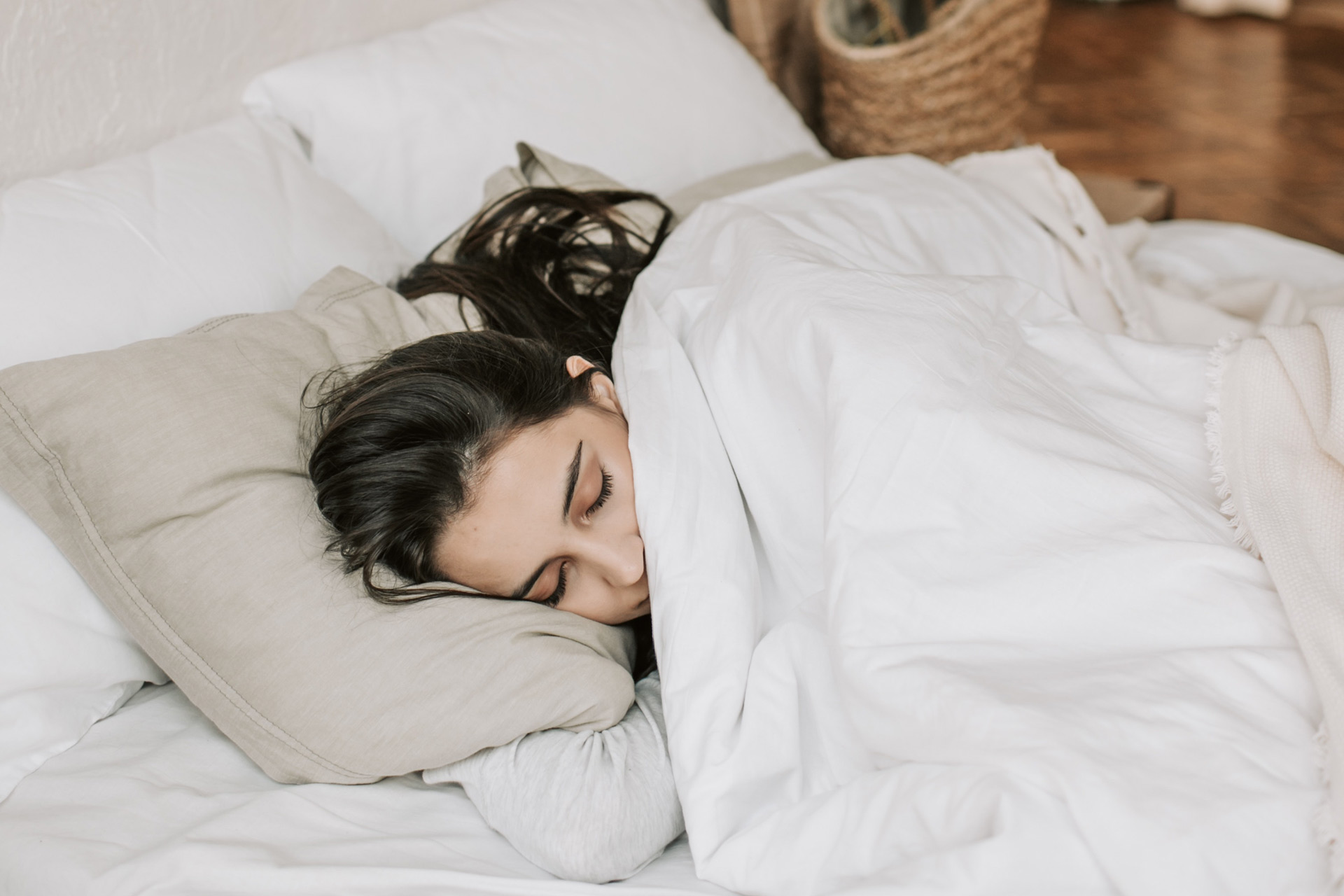
I’m Taking Magnesium Supplements – And I’ve Never Slept Better
By
1 year ago
Magnesium is trending on TikTok right now, and for good reason
Generally, I’m one of those lucky people who sleeps well. But recently, the sleep scores on my FitBit began creeping lower and lower as I found myself unable to switch off when my head hit the pillow – and when I eventually did fall into REM, I’d be up again at 2am worrying about a seemingly endless to-do list of jobs big and small.
TikTok was inevitably listening to me sharing my woes with friends, as my For You page soon began filling up with videos raving about the transformative effects of magnesium. The ingredient has been getting a lot of attention on the platform lately, with devotees raving about the health perks – crucially, its beneficial impact on sleep.
I’m often sceptical of wellness trends on TikTok, but this one actually has scientific backing. An essential macronutrient, magnesium plays a key role in many processes in the body, and despite being the fourth most abundant mineral, our bodies don’t produce it. We can get it from food, but supplements are sometimes recommended by nutritionists and GPs for those feeling like they’re lacking in the mineral – or struggling with symptoms such as poor sleep and low mood. I decided to give it a whirl, and was not disappointed.
Do Magnesium Supplements Work?
I opted for the Night Pill from You’re Looking Well, a pioneering new supplements and skincare company, which is designed to be taken shortly before going to sleep each night. Within just a couple of weeks, I noticed a big difference: I was falling asleep much more quickly, sleeping right through until my alarm went off the next morning, and awaking feeling refreshed. The dream.

(c) Pexels
It’s worth noting that, alongside magnesium, this particular supplement also contains L-theanine, another ingredient renowned for its sleep regulation properties. However, magnesium is certainly the hero here: the sleep-boosting benefits have been widely reported. As nutritionist Kim Pearson explains, the ingredient’s calming effects on the nervous system can help people relax. ‘This essential mineral has the ability to impact the calming neurotransmitter GABA, helping to reduce brain activity in preparation for sleep,’ she says. ‘Deficiencies in magnesium have been associated with insomnia and disrupted sleep patterns.’
It’s not just me shouting about the benefits: the science is there too. One study tracked a group of older adults suffering with insomnia, exploring how taking a daily magnesium supplement changed their sleep. After eight weeks of taking 500mg each day, participants reported significant improvements in sleep quality. Another study, meanwhile, found a link between magnesium intake and short sleep duration, suggesting people with inadequate magnesium intake slept for less time than people who were getting enough in their diets.
Better shut-eye isn’t the only perk either. Magnesium is also beneficial for bone health, blood sugar metabolism and energy production (you can find out more about all that here).
How Much Magnesium Do We Need Each Day?
The recommended amount varies based on age and gender. Dr. Vijay Murthy, functional medicine doctor and co-founder of Murthy Health, suggests:
- Women aged 19-30 need 310 milligrams (mg) per day
- Women aged 31 and older need 320 mg per day
- Pregnant women aged 19-30 should aim for 350 mg per day
- Pregnant women aged 31-50 should get 360 mg per day
- Men aged 19-30 need 400 mg per day
- Men aged 31 and older need 420 mg per day
As with any health concern, it’s worth chatting to your GP if you’re noticing signs of deficiency (these include fatigue, low energy and nausea).
Best Magnesium Supplements
While I can vouch for You’re Looking Well, there are plenty of other magnesium supplements out there, available in both pill, powder and even topical form. If better sleep is your goal, some of the best options include:
- You’re Looking Well, Night Pill, ylwclub.com
- Form Nutrition, ZZZZs, formnutrition.com
- The Nue Co, Magnesium Ease, uk.thenueco.com
- JS Health, Advanced Magnesium+ Formula, uk.jshealthvitamins.com
- Inessa Magnesium, inessawellness.com
- Wild Nutrition Food-Grown Magnesium, wildnutrition.com
























